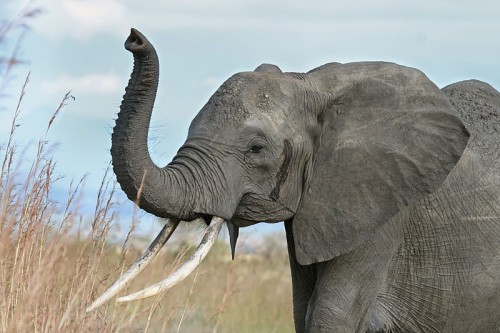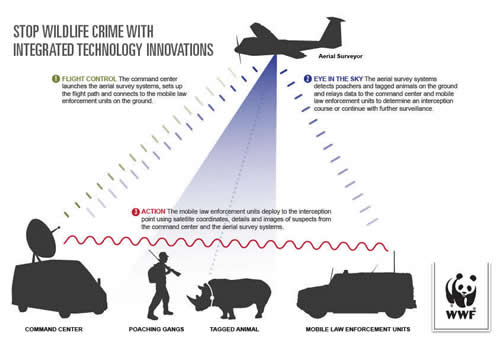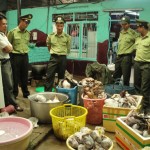
Thanks to a grant from Google’s Global Impact Awards, WWF will receive $5 million for “conservation drones” and other innovative tools to protect endangered species in Africa and Asia.
WWF will use the “umbrella of technology” grant to develop a global system which will detect traffickers, monitor wildlife, and boost the effectiveness of ranger patrols.
Remote aerial survey systems, wildlife tagging technology and ranger patrolling guided by analytical software like the Spatial Monitoring and Reporting Tool (SMART) will be integrated to increase the detection and deterrence of poaching in vulnerable sites in Asia and Africa.

Increased demand for products made from endangered species combined with unprecedented purchasing power in China and Southeast Asia have contributed significantly to an illegal market estimated at $7 — $10 billion annually. Rhinos, elephants, tigers, bears, pangolins, freshwater turtles and tortoises are just a few of the species at risk because of Asian appetites.
Corruption is also an issue. Crawford Allen of TRAFFIC North America told NBC News that “officials in developing countries can be convinced to turn a blind eye for a price” and can be reluctant to “put this kind of infrastructure in place on their own”.
WWF President and CEO Carter Roberts says the big boost from Google “pushes the envelope in the fight against wildlife crime”, explaining that endangered species are facing an “unprecedented crisis” and “sophisticated solutions” are necessary.
The Google grant coincides with Wildlife Conservation Day, designated as December 4th by the United States. In addition, an international outreach campaign was launched in conjunction with Secretary of State Hillary Rodham Clinton’s call for a multilateral coalition against the illegal wildlife trade.
Wildlife trafficking relies on porous borders, corrupt officials, and strong networks of organized crime, all of which undermine our mutual security.
Here’s to hoping for more corporations to follow Google’s lead and join the fight against wildlife trafficking!
Image by Muhammad Mahdi Karim via Wikimedia Commons




